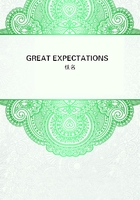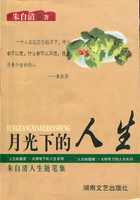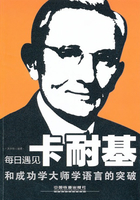61. Inches, feet, etc., are settled stated lengths whereby we measure objects and estimate their magnitude: we say, for example, an object appears to be six inches or six foot long. Now, that this cannot be meant of visible inches, etc., is evident, because a visible inch is itself no constant, determinate magnitude, and cannot therefore serve to mark out and determine the magnitude of any other thing. Take an inch marked upon a ruler: view it, successively, at the distance of half a foot, a foot, a foot and a half, etc., from the eye: at each of which, and at all the intermediate distances, the inch shall have a different visible extension, i.e. there shall be more or fewer points discerned in it. Now I ask which of all these various extensions is that stated, determinate one that is agreed on for a common measure of other magnitudes? No reason can be assigned why we should pitch on one more than another: and except there be some invariable, determinate extension fixed on to be marked t~ the word inch, it is plain it can be used to little purpose; and to say a thing contains this or that number of inches shall imply no more than that it is extended, without bringing any particular idea of that extension into the mind. Farther, an inch and a foot, from different distances, shall both exhibit the same visible magnitude, and yet at the same time you shall say that one seems several times greater than the other. From all which it is manifest that the judgments we make of the magnitude of objects by sight are altogether in reference to their tangible extension. Whenever we say an object is great, or small, of this or that determinate measure, I say it must be meant of the tangible, and not the visible extension, which, though immediately perceived, is nevertheless little taken notice of.
62. Now, that there is no necessary connexion between these two distinct extensions is evident from hence: because our eyes might have been framed in such a manner as to be able to see nothing but what were less than the minimum tangibile. In which case it is not impossible we might have perceived all the immediate objects of sight, the very same that we do now: but unto those visible appearances there would not be connected those different tangible magnitudes that are now. Which shews the judgments we make of thc magnitude of things placed at a distance from the various greatness of the immediate objects of sight do not arise from any essential or necessary but only a customary tie, which has been observed between them.
63. Moreover, it is not only certain that any idea of sight might not have been connected with this or that idea of touch, which we now observe to accompany it: but also that the greater visible magnitudes might have been connected with, and introduced into our minds lesser tangible magnitudes and the lesser visible magnitudes greater tangible magnitudes. Nay, that it actually is so we have daily experience; that object which makes a strong and large appearance, not seeming near so great as another, the visible magnitude whereof is much less, but more faint, and the appearance upper, or which is the same thing painted lower on the retina, which faintness and situation suggest both greater magnitude and greater distance.
64. From which, and from sect. 57 and 58, it is manifest that as we do not perceive the magnitudes of objects immediately by sight, so neither do we perceive them by the mediation of anything which has a necessary connexion with them. Those ideas that now suggest unto us the various magnitudes of external objects before we touch them, might possibly have suggested no such thing: or they might have signified them in a direct contrary manner:
so that the very same ideas, on the perception whereof we judge an object to be small, might as well have served to make us conclude it great. Those ideas being in their own nature equally fitted to bring into our minds the idea of small or great, or no size at all of outward objects; just as the words of any language are in their own nature indifferent to signify this or that thing or nothing at all.
65. As we see distance, so we see magnitude. And we see both in the same way that we see shame or anger in the looks of a man. Those passions are themselves invisible, they are nevertheless let in by the eye along with colours and alterations of countenance, which are the immediate object of vision: and which signify them for no other reason than barely because they have been observed to accompany them. Without which experience we should no more have taken blushing for a sign of shame than of gladness.
66. We are nevertheless exceeding prone to imagine those things which are perceived only by the mediation of others to be themselves the immediate objects of sight; or, at least, to have in their own nature a fitness to be suggested by them, before ever they had been experienced to coexist with them. From which prejudice everyone, perhaps, will not find it easy to emancipate himself, by any [but] the clearest convictions of reason.
And there are some grounds to think that if there was one only invariable and universal languages in the world, and that men were born with the faculty of speaking it, it would be the opinion of many that the ideas of other men's minds were properly perceived by the ear, or had at least a necessary and inseparable tie with the sounds that were affixed to them. All which seems to arise from want of a due application of our discerning faculty, thereby to discriminate between the ideas that are in our understandings, and consider them apart from each other; which would preserve us from confounding those that are different, and make us see what ideas do, and what do not include or imply this or that other idea.















